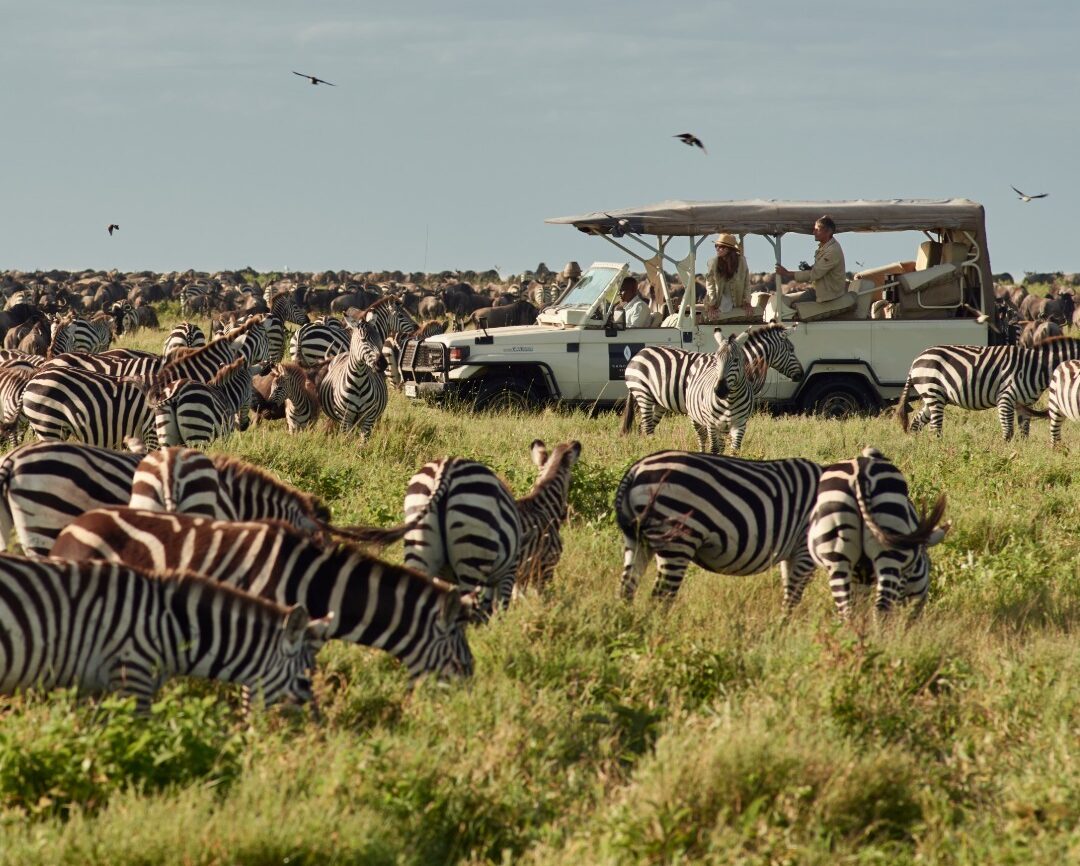An African safari offers exciting opportunities to interact with wildlife, but the timing of your trip determines whether you have an amazing experience or not. There are special chances to see wildlife, weather, and seasonal phenomena every month. In order to help you choose the best time for your African safari journey, this blog post will help you understand the subtle differences between each month.
In Africa, the seasons play a pivotal role in shaping the safari experience:
Dry Season: This typically occurs during the winter months in Africa (June to October). It’s characterized by minimal rainfall, making it easier to spot wildlife as they gather around water sources. The landscapes are often clearer, enhancing visibility.
Wet Season: Occurs during the summer months (November to May). This period sees more rainfall, leading to lush greenery and blooming vegetation. While wildlife might disperse due to abundant water sources, this season offers stunning landscapes and the chance to witness births and migrations.
Dry Season: Ideal for wildlife viewing as animals congregate around remaining waterholes, rivers, and lakes. This concentration enhances the chances of spotting the Big Five (lions, elephants, buffalo, leopards, and rhinos) and other iconic species.
Wet Season: While wildlife might be more dispersed due to increased water availability, this period can be excellent for birdwatching and experiencing the beauty of migratory birds.
East Africa: Countries like Kenya and Tanzania experience a drier period from June to October, perfect for witnessing the Great Migration in the Serengeti and Maasai Mara. The wetter months from November to May bring lush landscapes but can make roads impassable in some areas.
Wildlife migrations are among the most captivating spectacles in African safaris
They showcase nature’s grandeur, with millions of animals moving across vast landscapes in search of food, water, or breeding grounds.
Migrations offer unparalleled opportunities for wildlife sightings as herds of animals traverse open plains and rivers, often pursued by predators.
The Great Wildebeest Migration (Kenya and Tanzania): This iconic event sees over a million wildebeest, along with zebras and gazelles, migrating between the Serengeti in Tanzania and the Maasai Mara in Kenya. Witnessing river crossings during this migration is a highlight for many safari-goers.
Flamingo Migration (East Africa): Lake Nakuru in Kenya and Lake Manyara in Tanzania host vast flocks of flamingos during their migration, painting the lakeshores pink.
Great Wildebeest Migration: The migration is a year-round event, but the best times to witness river crossings are typically between July and October as herds traverse the Mara River.
Flamingo Migration: While flamingos can be found in these areas throughout the year, the peak season for their gatherings often aligns with the dry season from July to October.
Peak Season: This typically coincides with the dry season in various regions, usually from June to October. This period offers optimal wildlife sightings, but it also means higher prices and more tourists.
Off-Peak Season: During the wetter months, from November to May, accommodation prices can drop, and there are fewer visitors. However, wildlife might be harder to spot due to its dispersal across lush landscapes.
Peak Season: Accommodations and tours are in high demand, often leading to limited availability and higher prices. It’s essential to book well in advance to secure preferred lodges and tour packages during this time.
Off-Peak Season: Accommodation rates might significantly drop, and tour operators may offer discounts or special packages to attract visitors. However, some lodges or camps might close during the low season due to maintenance or unfavorable conditions.
Book Early: Secure accommodations and tours well in advance, especially for peak season travel, to access early bird discounts and ensure availability.
Flexible Travel Dates: Consider traveling during shoulder seasons, just before or after peak times, to benefit from lower prices while still enjoying good wildlife sightings.
Monitor Special Offers: Sign up for newsletters from safari operators, follow them on social media, and regularly check their websites for promotional deals and last-minute offers.
Consider Package Deals: Some tour operators offer package deals that include accommodations, meals, and activities, which might be more cost-effective than booking each separately.
Dates to take advantage of potential discounts and deals offered by safari operators.
Research different safari destinations and their unique offerings, such as wildlife migrations, specific animal sightings, or landscapes, to align with your interests.
Book accommodations and tours well in advance, especially for peak seasons, to secure your preferred choices and potentially benefit from early booking discounts.
Consider package deals offered by tour operators, which may bundle accommodations, meals, and activities at a more cost-effective rate than booking separately.
Pack appropriate clothing and gear for the safari, including lightweight, neutral-colored clothing, sturdy walking shoes, a hat, sunscreen, insect repellent, and a good camera for capturing wildlife moments.
Ensure you have the necessary travel documents, such as visas and vaccinations, and familiarize yourself with local customs and regulations in your chosen destination.
Engage with reputable tour operators or guides who have local expertise and prioritize ethical wildlife encounters and conservation efforts during your safari experience.

The Great Maasai mara Migration.
From late July – September, over 1.5 million wildebeest, zebras, and gazelles are on the move. Don’t miss this breathtaking spectacle of nature!
Book Early & Save!
